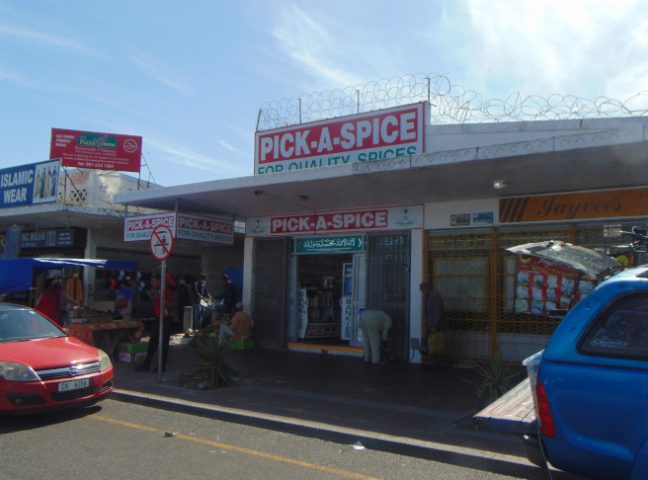
The Spice Wars (Part Seven) – The Hawk
January 3, 2022The Spice Wars Part Nine – The Interim Governor
January 4, 2022By Satish Sekar © Satish Sekar (January 2nd 2022)
Bestial Brutality – The Banda Massacres
Although it has a reputation for liberalism, there is a dark side to the Netherlands’ history – a very dark one. The Banda Massacres of March 1621 illustrate this. The Dutch East India Company (DEIC) wanted a monopoly on nutmeg, the lucrative spice that the Banda Islanders produced exclusively, but the indigenous population of the Banda Islands were offered wretched terms for that.
The commodities offered by the Dutch merchants was far below standard and value of produce offered by Arab, Indian or Javanese traders, or even others such as the Portuguese, so they resisted. While the third Governor-General of the East Indies, Laurent Reael, wanted a negotiated and humane solution, his successor Jan Pieterszoon Coen had no such qualms. Even if they were not given the quality or quantity, they believed they had agreed on, the profits they made due to the astronomic price of nutmeg in Europe were huge. Nevertheless, it was not enough for the DEIC or Coen and neither cared a whit for how they increased their profit margins.
Coen cited monopoly agreements as justification for imposing the terms they wanted on the Banda Islanders. Coen was prepared to use excessive force, brutality and what would surely be deemed war crimes now to force the Banda Islanders to trade on terms that favoured the Dutch, citing the monopoly agreements as justification. The Banda Islanders were not happy. After all, why would they grant a monopoly of their treasured commodity to the Dutch on worse terms than they had rejected from the Portuguese, among others. Furthermore, it is unlikely that the Banda Islanders even understood what they had ‘agreed’ to. None of that mattered to Coen. He had his ‘justification’ and if that cost the Banda Islanders their lives or liberty, well so be it.
Governor-Thug
This occurred under the stewardship of Coen, the fourth Governor-General of the Dutch East Indies. He requested permission from the Heeren 17 (Directors of the Dutch East India Company) to deal with the Banda question. His euphemistic request of October 1620 read as follows: “To adequately deal with this matter, it is necessary to once again subjugate Banda, and populate it with other people.”
It was approved. But it left another question unanswered and unasked. What would happen to the Banda Islanders? Coen’s methods were excessively brutal even for 400 years ago, but history would answer that question. And it would lead to more atrocities.
Bestial Atrocities
On March 7th 1621 Coen ordered a brutal attack to subdue the Banda Islanders. It failed to deliver unconditional surrender, so that brutality was followed four days later by another massacre, slavery and transportation. It was a genocide that ended the quest for monopoly on nutmeg trading. The Banda Islanders were starved, slaughtered, enslaved and transported to Batavia (now known as Jakarta).
2800 died. 1700 were enslaved and the remaining 1000 were transported. Coen took over the Banda Islands after the indigenous people, unable to continue the fight, were enslaved and transported, all because the greedy DEIC insisted on absolute control of the Spice Trade at far below market value too – monopoly capitalism at its brutal worst.
By today’s standards Coen would be seen as one of the worst villains to escape the hangman’s noose, but back then he was revered. He had delivered the lucrative nutmeg trade to the DEIC. They were rich because of him. The Netherlands, which turned a blind eye to the atrocities, enriched itself too. The DEIC was allowed to govern the East Indies colonies for almost two centuries 1610-1800. There was no condemnation of Coen then. That came 400 years after his bestial seizure of the Banda Islands.
A plot to allegedly murder the Governor of Ambon, Hermann van Spreult, was uncovered in February 1623 – the timing is important but in order to secure convictions torture was used waterboarding. 24 people were convicted and sentenced to death. Four Englishmen were reprieved, but on March 7th 1623 ten Englishmen, nine Japanese and a Portuguese were beheaded. The incident outraged the English and was cited as a cause of the Anglo-Dutch War over 30 years later.
Coen ended his first term as the Governor-General of the Dutch East Indies on February 1st 1623. On February 27th 1623 van Spreult ordered the execution of the merchants allegedly for trying to kill him. Even though he had only just been appointed as Governor-General of the Dutch East Indies, Pieter de Carpentier had the power to overrule van Spreult. He didn’t use those powers and the Amboyna Massacre wrecked Anglo-Dutch relations for many years to come.
In September 1627 de Carpentier finished his term as Governor-General of the Dutch East Indies. He was replaced by Coen who died in September 1629.


